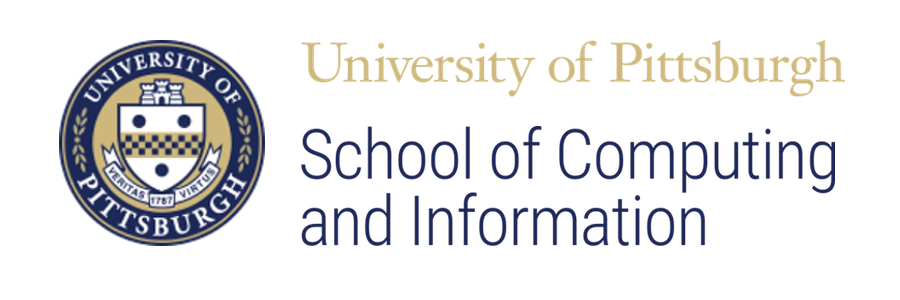It’s easy to find an online Master’s degree program in Library Science, but a Doctor of Library Science… Well, not so much! Most doctorate programs require some face-to-face interaction with students and faculty, and the residencies and dissertation process requires hands-on, on-campus attendance.
In fact, online programs in this field may be a challenge to find at all and on-campus programs are limited as well.
Albert Einstein once said, “The only thing that you absolutely have to know is the location of the library.” Do you think that Mr. Einstein would have approved of today’s technology and the wealth of knowledge we have at our fingertips through the use of the Internet? Do you know where your local library is located? Do you own a library card?
Without a doubt, avid readers are thrilled by four walls, enveloping them in bound books, from ceiling to floor, that offer a plethora of knowledge to the scholar or anyone who is just plain curious.
The library is an integral part of any community, as it is a special place for most. What about the smell of an old book? Does it bring back memories? Or, what about the history it has seen? What about the atmosphere of a library?… the silence, the reverence and respect for others, the total emersion of taking yourself to another place and time? Perhaps, all you hear is the occasional turn of a page.
At a library, kids get to enjoy the feel of a book in their little hands, people can learn a foreign language there, book clubs host get-togethers to discuss a common interest and at a library, you can hold someone’s innermost thoughts right in your hands. Libraries bring people together, young and old. The library is where “knowledge” lives!
Thank you Benjamin Franklin… for creating the first public library. Let’s make him proud and continue the sharing of valuable information, especially through the form of an open book. And okay, perhaps we can all agree that Mr. Einstein and Mr. Franklin would have approved of today’s digital accessibility – but only if they were in a time crunch!
Best Doctor of Library Science Schools
A Doctor of Library Science gives librarians a chance to rise to the top of their field and work in some of the top libraries in the country. Librarians with a Doctor of Library Science expand ordinary librarian skills to include the preservation of corporate records and research that may be concentrated around marketing and sales, statistics, or the study of clinical trials.
Check out these schools offering valuable coursework taught by top-notch faculty members. A PHD in Library Science is the way to go! Library Science programs will help you get that promotion you deserve!
THE UNIVERSITY OF PITTSBURGH SCHOOL OF COMPUTING AND INFORMATION

Program Standouts:
The Doctor of Philosophy in Library and Information Science program at the University of Pittsburgh School of Computing and Information “prepares students for careers in research, education, and professional practice.”
According to the program website, the purpose of the Ph.D. is to assist students in understanding library and information science at the highest level. Emphases in the program include producing original and significant research findings and contributing those findings to public knowledge.
Campus Location: Pittsburgh, Pennsylvania
Accreditation: Middle States Commission on Higher Education
Admission Requirements:
- Letters of Recommendation
- Transcripts
- GRE
- CV
- Statement of Intent
Focus Options:
- Archives and Information Science
- Information Behavior
- Health Information Behavior and Health Education Interventions
- Social Information Systems
- Web-based Information Systems
- School Librarianship
Degree Outcomes: With 6-degree focus opportunities, the Doctor of Library Science at the University of Pittsburgh gives students diverse options for their future as well as their current studies and employment.
From a career in School Librarianship to a job researching Information Science, students who graduate from this research-driven program become experts in their field of choice.
LEARN MORE ABOUT THE DOCTOR OF LIBRARY SCIENCE DEGREE AT THE UNIVERSITY OF PITTSBURGH SCHOOL OF COMPUTING AND INFORMATION
ILLINOIS SCHOOL OF INFORMATION SCIENCES

Program Standouts:
With guaranteed financial support for five years, the Ph.D. in Information Sciences at the Illinois School of Information Sciences is reputable and affordable. Known as the iSchool, the Illinois School of Information Sciences gives students the opportunity to excel in library and information studies.
The program at iSchool is interdisciplinary and research-oriented. The focus of the program is to give students and graduates the ability to respond to new technological and social opportunities for researching and producing information.
Campus Location: Champaign, Illinois
Accreditation: Higher Learning Commission
Admission Requirements:
- Bachelor’s and master’s degrees in Information Science or a related degree
- GPA of 3.0 or above
- CV
- Statement of Purpose
- Research Statement
- Letters of Reference
- Transcripts
- Writing Sample
Focus Opportunities:
- Field exam in a significant sub-area of LIS
- Research presentation to demonstrate research competency
- Dissertation culminating in a public presentation, defense, and submission
Degree Outcomes: According to the iSchool website, graduates with a Ph.D. in Information Sciences will have acquired the following learning outcomes:
- Global Information Consciousness
- Intellectual Reasoning and Knowledge
- Creative Inquiry and Discovery
- Social and Cultural Awareness and Understanding
- Effective Leadership and Community Engagement
LEARN MORE ABOUT THE DOCTOR OF INFORMATION SCIENCES AT THE UNIVERSITY OF ILLINOIS
SIMMONS UNIVERSITY

Program Standouts:
Students at Simmons University work closely with fellow master’s and doctoral students as well as experienced faculty. These engagements occur through analytical research, experience reports, self-reflective essays, and teaching and service activities.
Graduates of the Ph.D. in Library and Information Science program at Simmons University have a strong record of professional experience, publications, and a broad portfolio.
Campus Location: Boston, Massachusetts
Accreditation: Simmons University is accredited by the New England Commission of Higher Education, 3 Burlington Woods Drive, Suite 100, Burlington, MA 01803-4514
Admission Requirements:
- Updated Curriculum Vitae
- Statement of Purpose
- Writing Sample
- Official Transcripts
- Academic or Professional References
- GRE scores
Course Sample:
- Applied Statistics for Library and Information Science
- Qualitative Research
- Teaching Methods, Course Design, and Assessment
Degree Outcomes: According to the school’s website, “the School of Library and Information Science at Simmons University has an established reputation for producing leaders in professional service at local, national, and international levels.”
LEARN MORE ABOUT THE DOCTOR OF LIBRARY AND INFORMATION SCIENCE DEGREE AT SIMMONS UNIVERSITY
Frequently Asked Questions
What is Library Science?
Don’t think that being a librarian is dull and boring. Nothing could be further from the truth. If you have a love of research and your community, you will excel in library science as you combine the two. This field involves many components, such as education, statistics, management, as well as information systems, and digital technology.
You will be responsible for the collection and organization of information, as well as the preservation and distribution of integral facts and knowledge. Library science also includes protecting historical findings and cultural information, along with records management.
Librarians are found in traditional community libraries, government offices, educational institutions, and in corporation research departments. They assist others in the research process by providing historical information on paper or online.
How are your investigating skills? If you enjoy a good mystery, often librarians are given a treasure-hunting assignment for a particular subject of publication.
In addition, librarians often organize and host public and private events, as well as organize children’s summer reading programs. With a Ph.D. in Library Science, you may oversee projects such as studying clinical trials, preserving corporate records, and researching marketing and sales statistics.
How do I earn my Doctor of Library Science degree?
Depending on your choice of school, you may or may not need to have a master’s degree to enter a doctorate degree program in library science, although you may be required to pass an admittance exam. In addition, if needed, you may be allowed to add on the necessary graduate work needed to complete the doctoral program entry requirements.
Coursework in a Doctor of Library Science program may include communication and leadership work, as well as programs such as:
- advanced research methods,
- teaching library information science,
- regulations and information science,
- theories in library science.
Your program will include a dissertation.
Library Science degree?
Positions for librarians are projected to grow by 3% between 2022 and 2032, according to the BLS. As current librarians retire and the need for well-qualified personnel to take their places continues to increase, libraries need excellent management as well as committed keepers of organized information.
What kind of salary can I expect?
Generally, the librarian’s salary ranges from $36,260 to $98,650 per year.
What are some career choices in the field of library science, you ask?
A Web Archivist maintains online sources such as websites, and they transfer hard copy materials into digital form. A School Librarian works closely with students assisting them in their academic research.
Library Directors and Administrators are needed to efficiently oversee the day-to-day operations of public or corporate libraries. The Director of Content Acquisition searches for content to add to the library.
With your Ph.D. in Library Science, you may also choose to focus on research or teaching at the university level.
Do I need to obtain certification in the field of Library Science?
You will need to check with your state’s regulations; however, certification is required in most states. Some states may require you to obtain a teaching license, as well. Voluntary certifications are available, too.
What schools offer Doctor of Library Science degrees?
The following schools offer their students the opportunity to earn a Ph.D. in Library and Information Science degree, primarily through an on-campus format: The University of Pittsburgh School of Computing and Information, located in Pittsburg, PA, the Illinois School of Information Sciences in Champaign, IL and Simmons College in Boston, MA.
The Bottom Line
If you would like to do your part in keeping your community’s library an interesting and informative resource for future use, then sign on to earn a doctorate program focused on library science today.
As today’s technology is ever-changing, the field of library science must keep up and evolve with it. You can be a part of the change… oh, and always know the way to the library!
Additional Resource:
